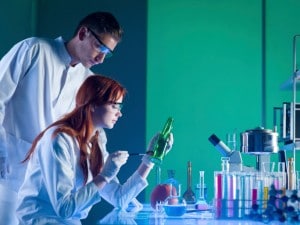Prosecutors use forensic science to interpret evidence in criminal cases, but are they really getting the facts right? Forensic experts can help you show the jury that the evidence against you doesn’t necessarily say what the prosecutor says it does.

As an experienced defense attorney, Dan Chambers of the Chambers Law Firm knows that prosecutors will try to use evidence to their advantage. But forensic experts can help you make your case that the evidence shouldn’t necessarily be taken at face value.
Don’t think science can make a difference? Facts are facts, right? Wrong. Forensic science—and the way forensic experts presented the evidence—made a difference to the jurors in the O.J. Simpson murder trial. Prosecutors claimed to have DNA evidence to prove that Simpson was guilty, but jurors didn’t understand what the evidence really meant. They weren’t convinced by the evidence—and they had reasonable doubts. Because they had reasonable doubts, the jurors unanimously voted to acquit Simpson.
How can forensic science help my case?
In the Simpson trial, the prosecution didn’t prove their case beyond a reasonable doubt. In your own case, you need to put on a defense that raises reasonable doubts. If something about the evidence doesn’t add up, you need your attorney to point that out. You may even want to call in a forensic scientist to help explain to the jurors what the evidence really says—and doesn’t say. If you call Dan Chambers of the Chambers Law Firm to schedule your free initial consultation, he will meet with you personally to determine the best strategy for the best result in your case.
What is forensic science?
Of course, a witness to a crime can describe what they thought they saw happen. When there are no eyewitnesses, prosecutors rely on physical evidence to tell their story of how things happened. To explain the evidence, attorneys rely on forensic scientists.
Forensic science is simply any type of science that law enforcement uses on to explain evidence found in an investigation. This physical evidence could be blood, hair, fingerprints, DNA, bullets, clothing fibers, or even documents or computers. Forensic scientists are the scientifically-trained specialists who collect, preserve, and analyze the evidence in an investigation.
It is important that everyone involved in an investigation, from the police at the scene to the technicians at the crime lab, follows the proper procedures exactly in order to preserve the evidence just as it was at the scene of the crime. If evidence becomes tainted, it could change the results of a test. If evidence might be tainted, the jury needs to know.
The evidence also needs to be analyzed properly, using up-to-date techniques. Sometimes scientists discover that assumptions they made before are just plain wrong. Unfortunately, investigators and labs may still follow outdated practices, and end up with wrong results. Even worse, they might falsify evidence just to get a conviction.
In many states, including California, hundreds of lives have been ruined because people were wrongfully convicted due to sloppy work, outdated scientific information, or false evidence.
Don’t risk a wrongful conviction just because the prosecution can twist evidence against you! Contact Dan Chambers today to help you make the best defense by calling 714-760-4088, emailing dchambers@clfca.com, or sending an online message via the Chat box at the bottom right of this page.




